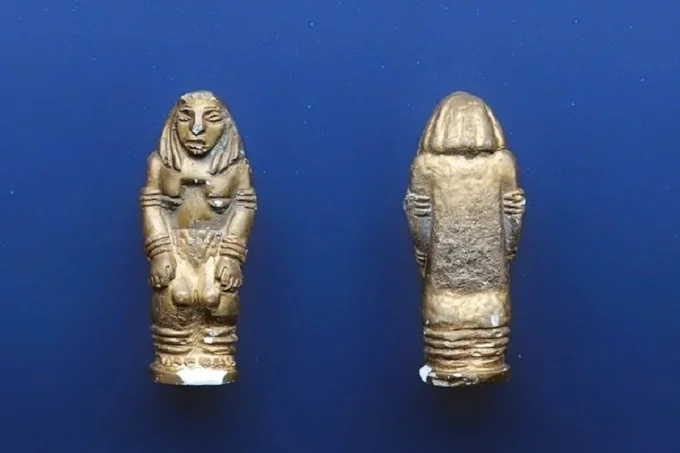If the treasures that fell to the bottom of the sea after the wreck of the ships were at least confirmed by any reliable data, then it is difficult to say this about the legendary treasures. Their locations were most often supported by legends. So the information about the “Golden Woman” – a statue that representatives of different peoples worshiped, remains nothing more than a legend…
The “Golden Woman” became known from the XI century, and personified the Great Goddess of the North, to whom the Permians, residents of the Ural forests, and other peoples paid tribute. Later, information about this “figure” reached Western Europe.
This was written by a geographer from Poland, Matvey Mekhovsky. And the ambassador from Austria, who stayed in Muscovy in the 20s of the XVI century, but who did not happen to see the sculpture with his own eyes, managed to write down a detailed story about the “Golden Woman”.
Many more fans of legends, such as the Englishman Jenkinson, A. Guagnini from Italy, and others in their writings tried to specify as accurately as possible the place where the idol is located, which peoples worship it, and what they have in return. Some authors have written that people who ask the “Golden Woman” even get answers to the questions asked.
Attempts have been made repeatedly to find the most famous statue. The first in this business were the Novgorodians, who loved to get hold of the loot. After the Novgorodians, the Ermakov Cossacks showed interest in the “Golden Woman”. They were told about the statue by a Chuvash who defected to the side of the Cossacks during the siege of the Tatar settlement. However, despite the rather impressive story about the location of the golden idol, the Cossacks never managed to find the “sacred” statue.
The most interesting thing in this story is that neither Russian nor European travelers saw the “idol” of many, but almost everyone who heard about her had a desire to find the “Golden Woman”. The more people talked about the mysterious idol, the greater the desire to find it.
Some said that the height of the statue is about 30 centimeters, others claimed that it is the size of a person; dressed in clothes or naked; in a sitting or standing position; with a child in her arms or without it. And what is important is that the shrine was constantly changing its place of residence, which was hidden from everyone.
Get $2 daily for reading a story. How does it work? Download the app, sign up, and start cashing out. Click the link
If you believe the stories, the “Golden Woman” path began with sanctuaries in the western direction from the Urals. And the last place of its location, according to “eyewitnesses”, was either Kazima or Taza.
Based on several versions, the “Golden Woman” was the identification of various pagan goddesses: the goddess Yumala, the goddess Guanyin, the goddess Kaltash. To date, the mystery of the idol remains a mystery. They talk about her a lot, but no one has ever seen her live.
